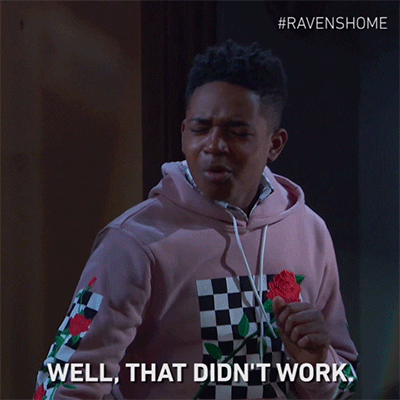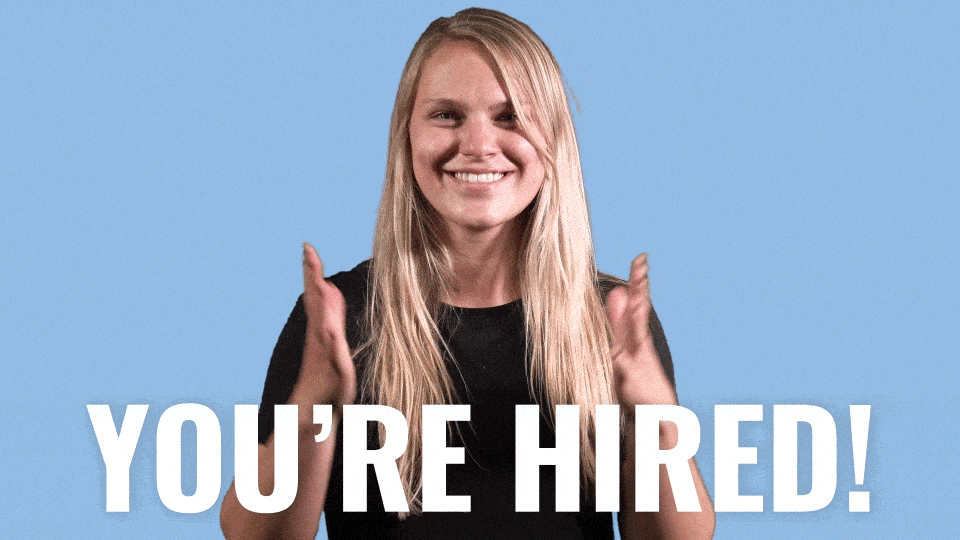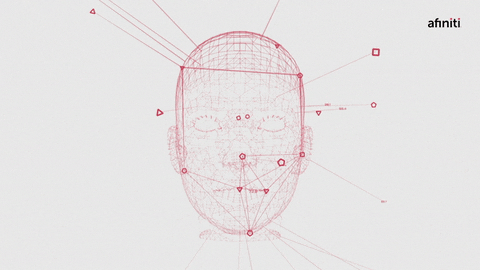Post-Yandex Acquisition: A serial founder's contrarian approach to hiring
Second-time founders are built differently. When speaking to them, you get a sort of "I've been through battle and have the scars to prove it" energy.
If you’re short on time, read the 30 second version of this post.
Second-time founders are built differently. When speaking to them, you get a sort of "I've been through battle and have the scars to prove it" energy. Speaking to Tonia Samsonova, who exited her previous startup to Yandex (the Google of Russia), hit differently, though. She has experience, humility, and raw intellect. We could have spoken to her for hours.
Her current startup, exactly.ai – the world's first AI marketplace that puts creators first – is building a product that solves a genuine problem for non-creatives: how to use AI to generate images that don’t look soulless. They may be better than the atrocities non-creatives could draw, but they don't "wow" you either. Enter exactly.ai, which offers ethical models owned by artists (and ensures they get paid in the process).
Big tech companies have become more efficient with vast datasets and machine learning. In the same way, every professional will be able to train their AI to become more efficient. The key ingredient to making a really powerful technology is to train it on your own data so that it can understand you. That will lead to a situation where people can scale themselves, so if they're ambitious and smart, they can sell their work to many clients.
Tonia Samsonova, Co-founder & CEO
Her thoughts around recruiting and people are pretty contrarian. She doesn't believe that there are mediocre people, welcomes talented hires who are challenging to work with and has made some key hires for exactly.ai in a somewhat unconventional manner. These are just some of the topics we cover, amongst others:
Second-time founder wisdom
Views on the future of recruiting and hiring
Opinions on the future of AI
Where does the AI stop and the human begin?
If you’re short on time, check out Tonia’s Practical Tips ✨ below.
1. Second-time founder wisdom
I'm a second-time founder. I've made many mistakes.
If you've ever worked at startups, you'll know that talented people are not always the easiest to work with. Ultimately, the startup (and its employees) are better off working with them, though. Tonia purposely creates an environment where these individuals can thrive:
Talented people are usually difficult; it's my job to accommodate them and ensure they can work in my startup. I'm their manager, so I hold myself accountable for their performance; their success is my success. Supporting your team, being able not to take offence or letting emotions take over even if they've done something that looks bad on the surface is ultimately worth it for the right person. My job is to make sure they feel good at work so they can flourish.
Difficult people can fall into many categories. Disagreeable. Stubborn. Harsh even. But that doesn't mean you shouldn't want to work with them: they may also possess qualities you actively want in a startup. In Tonia's case, she looks for three qualities in particular:
I'm looking for three distinctive qualities: the person needs to be 1) extremely smart and curious, 2) set very high standards for themselves, and 3) have integrity. I don't want to work with them if they're not honest or fair to others. I want to work with people who have their solid principles and values.
It's at this point that her second-time founder experience shines through
I'm not great at assessing people. I've been hiring and firing people for the last 10 years, but I am unhappy with how I assess candidates. I have a bias for strong storytellers, and I fall for their intellectual traits quickly. I'm super curious about their story and can forget that I'm there to assess the candidate. So I have partners who help here: They know what I'm looking for – we have worked together for many years – So I always ensure that it's not only me doing the interview.
Having both been at startups, we admire this self-awareness. No founder can be as strong as a single individual. Deliberately accounting for our perceived weaknesses is something we should all strive for.
The maturity with which Tonia approaches hiring means she is most impressed when seeing someone deliver value, as opposed to founders are impressed by a fancy-looking resume. This means she's ultimately quite flexible when hiring and has indeed hired individuals with pretty unconventional job applications (from an intern all the way to the head of ML research).
I got an email from a candidate asking for an internship. I told him I was in the office on Tuesdays and Thursdays but never confirmed a meeting. Next week, I get a call at 9 am. "I'm downstairs. I know we haven't confirmed a time in the calendar, but I thought I'd check if now is a good time". Eventually, we gave him a shot and ended up hiring him. Our head of ML research sent me images purchased with a model for one of our illustrators. His images, trained on his computer, worked better than what we had in the product. I realised that he spent the whole weekend coding up a solution. Even though we didn't have a role (and I had not yet secured funding), I knew I had to hire him.
We love startups because they thrive on this kind of flexibility. The intern showed initiative, and the head of ML research proved his expertise. These tactics might not work in more corporate environments, but in startups, candidates willing to think outside the box are usually the ones who can end up working out really well.
These may seem like peculiar recruiting tactics until you hear Tonia's story of getting her first break as the host of a popular radio show in Russia at the age of 18:
I was so scared of being unable to secure a job after university. So, I approached the editor-in-chief of a popular radio station in Russia and showed him my show. He was a fan and gave me a shot. You can do many great things out of fear. In my case, I'd trained as a sociologist, so the fear of doing the conventional thing (working for a pollster) for the next 10 years of my life was also a driver.
If applicants want to stand out, they need to find a way to deliver value immediately: Rather than saying how great they’d be in a role; they need to show employers instead.
Practical tips ✨
Acknowledge your biases in hiring - use partners to cover your blind spots
Don't dismiss difficult but talented people - create an environment where they can thrive
Look for initiative over traditional credentials - sometimes, the best hires come from unconventional applications
2. Views on the future of recruiting and hiring
Her recent frustration shapes her views on the future of recruiting. In May of this year, she raised a $4M VC round. As you might imagine, after a successful round of funding, her phone became a target for recruiters.
Since we announced the round, I've been unable to use my phone. It led to my emotional breakdown at some point because I was expecting a phone call from my child's school. As a parent, you can't afford not to pick up the phone, so you answer every call. I feel empathy as a founder; these people are trying to make a living, so you can't be aggressive with them. However, it shows me the inefficiency of the information market.
This inefficiency is what some commentators have highlighted as the opportunity for AI to create the next trillion-dollar marketplace1, allowing us to finally eliminate the complexity of matching services by helping both sides to "scope" what they need from the other side.
It's 2024. If we have Tinder, why can't we have a Tinder for hiring? Just imagine how much pain there is. For candidates, they're knocking on the wrong doors. For hiring managers, somewhere out there is an ideal match who can solve your company's current problem. But finding those doors and that match? It's an unsolved problem.
Unsolved problem, indeed. There's a reason recruiters still exist, and so many still use cold outbound: it's a necessary evil. But whilst a bad date costs you an evening, a bad hire costs you months of time (and runway).
Here's another battle scar Tonia shared:
I have rarely worked with recruiters. In startups, I thought they were a luxury. Eventually, I realised that with some crucial roles, it's not a luxury: It's a necessity. If you make a mistake, you will lose six months. I concluded I'd better pay a recruiter now because the alternative cost is months of wasted time and runway.
Our take on this one is that you only avoid wasting time if the quality of the recruiter is high. If you haven't scoped a role properly and are simply paying a recruiter to keyword match on LinkedIn, you're probably still wasting your time. However, if you have a clear scope in mind and you're working with a recruiter with the right specialisation and network, you'll likely save a lot of time and money.
We then discuss the importance of the current AI boom, which is resulting in new tools appearing every week.
Many things are happening in the tech industry right now with AI. New startups are launching every day, and we're experiencing a boom. It's like the first year of the App Store, but it's even bigger than that. Having someone who is constantly thinking about which tools are available today (that were not yesterday) and can solve our business problems is critical. It wasn't like that a year ago.
Practical tips ✨
Consider specialised recruiters an investment rather than a luxury for crucial roles - the cost of a bad hire is often higher than a recruiter's fee (but scope your role before that!)
Constantly scout new AI tools that can solve your business problems.
3. Tonia's thoughts on AI
As compute and memory have become democratised, the true differentiator between companies has become their data. It's crucial to have curated datasets that allow AI models to learn the characteristics of said data. This is especially true in exactly.ai's case, where Tonia feels the "primary source of beauty is artistic datasets'". Indeed, there is a moment of magic when you feed this huge human-made data lake to a machine that can create imaginations of our work that we haven't conceived. Without these datasets, the AI is simply producing garbage.
Tonia is fascinated with search engines, particularly those that use AI to find exactly the information we need. At her previous company, as a guest producer for a radio show, she needed to decide which experts to call to ask questions. They would be around daily news, so the need was constant. She built up a phone book with thousands of those experts' numbers, names, and tags but quickly encountered the limits of human scaling when matching experts to questions.
At some point, I had 100,000 daily questions so even scaling up my team wouldn't help. I trained a model to identify which expert to call. The quality of the predictive model was similar to my manual matching. That was the first time I converted my human skills into a model.
This personal experience has helped her frame other problems like exactly.ai, which she sees as a search engine for something that doesn't exist yet. That is quite profound. These tools give us superpowers, at least according to Tonia.
With evolving technology, engineers are trying to replace the idea of god. People want to become super powerful, right? That's what technology gives us: superpowers. Think about Marvel Comics, where superheroes' thoughts can travel in an imaginary space. That's the Internet.
As humans, we can now communicate across the world in moments. We can alter our DNA with gene editing and create approximations of human interactions through AI. We can't help but feel that our pursuit of technology does indeed try to close the gap between human capability and an all-powerful being. It's focused on control and the likeness of the human condition, which is a funny reflection of the pedestal that humans place themselves on.
AI, in particular, can control people like never before, and when left in the hands of big tech companies or regimes, there are dystopian-like consequences. The Chinese Communist Party (CCP) actively employs AI to monitor individuals, assigning them social credit scores. In the West, governments have harvested voter data for targeting. George Orwell's book 1984 paints this picture very well.
Practical tips ✨
AI first founders should focus on building and curating quality datasets - they're the true differentiator.
Consider how AI can scale your expertise as Tonia did with her expert-matching system. Keep humans in the loop for quality control and decision-making.
4. Humans in the loop
Tonia does not believe that anybody is mediocre by nature. Rather than seeing AI as a replacement for human capabilities, she sees it as a supplement that can elevate everyone's potential. She believes if you spike on specific attributes, you can maximise those skills while using AI to bring your less apt skills to a higher level.
If you have skills in your job across three dimensions, where one is solid, one is mediocre, and one is weaker, then AI brings your level up across all three. Mediocrity doesn't exist to me; I see it instead as inequality: if you are poor, you likely have less time for imagination. But we're all born curious. It's the environment around us that dictates our life path. AI simply facilitates finding that curiosity again.
She provides a personal example by laying out her weak points. She uses AI as a tutor to answer her most burning questions without feeling stupid or burdensome.
My knowledge of maths and statistics is below average. With ChatGPT, I can take a scientific article and put it in, and if one paragraph is entirely alien, I can ask ChatGPT to explain it to me like I'm five years old.
From our point of view, this is precisely how you should introduce AI into your work. It still requires a sharp mind, though, because asking pertinent questions is still really important. It requires you to know your weaknesses so you can use AI to cover those. This relationship with AI makes sense, as it is built by and for humans. It's great at what humans can't do and vice versa.
Every job has its core rules, whether you're a chef, lawyer, or HR professional. What makes someone exceptional is their personal touch. AI can help with the fundamentals, freeing humans to focus on their unique contributions. Whatever we humans are good at, AI is bad at, and vice versa. Compared to AI, we are super slow in summarising an essay consisting of 1000 pages. But what we are great at is driving conclusions from two examples.
We fully agree. Creating something exceptional requires a human touch. While AI can accelerate innovation, humans must guide it to draw "leap of faith" conclusions from sparse data. When innovating, we learn by trial and error, so these leaps of faith will often be wrong, but we learn and readjust our thinking. AI cannot do this yet; it simply hallucinates without truly learning what went wrong.
Francois Chollet, creator of Keras, the deep learning library, has devised the ARC prize to better determine whether an AI is genuinely converging on artificial general intelligence (AGI). Currently, LLMs are trained on all data on the Internet so that they can answer most problems, but if they have not learnt the novel problems like in the ARC prize, they simply fail.
Practical tips ✨
Use AI to supplement areas where you or your team members are weaker. Identify your team's strengths and use AI to handle the routine tasks that don't require human creativity.
Create processes that combine human judgement with AI efficiency.
Conclusion
Human-AI collaboration is going to evolve rapidly. We have not seen an adoption of a tool like this since the release of the iPhone and App Store. You will need to keep playing around with tools to ensure you're up to date.
The good news is that Tonia believes our place in this future is secure as long as we are kind and play to our strengths. This does mean, though, that we must become more aware of our weaknesses so that we either hire others or use AI. The staunch reality here is that there will be pain on the way to this human-AI collaborative future.
I know that there will be many victims along the way to the progress.
First-time founders should take an introspective look at themselves before deciding who to hire. There is a tendency to hire people like yourself, which may sound great in principle as it builds a 'culture', but it removes diversity of opinion and tends to lead to a concentration of power in certain groups. It is your job to manage this highly talented group of people, even if they disagree with you or are difficult to work with.
Try to let candidates express themselves through creative projects or soft skills like tenacity. Clarifying your job description and the role you are hiring for is vital. Otherwise, we have this dysfunctional information market, and neither you nor the candidate will win.







